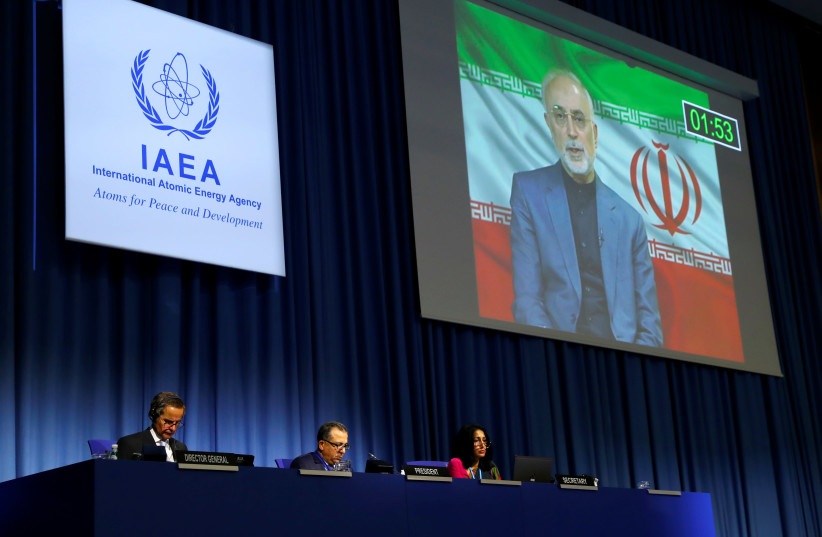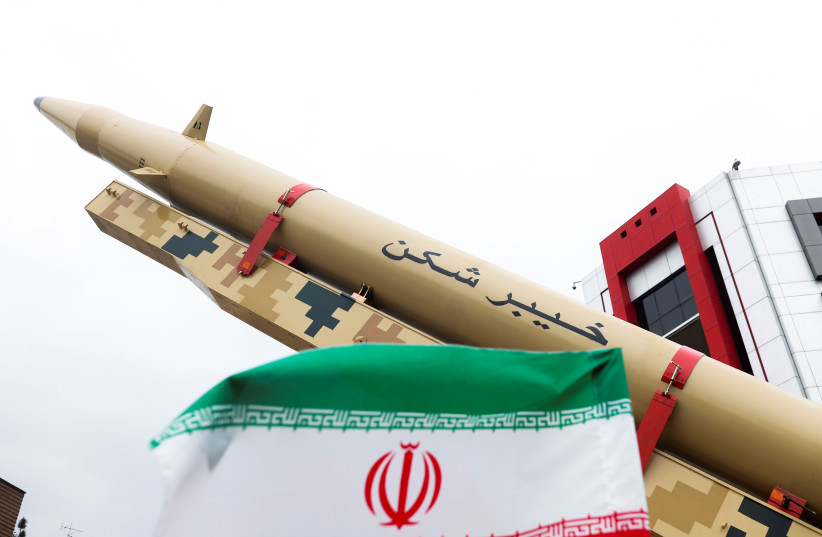While sending the mixed messages it thrives on, Iran on Monday and in recent days has sent more positive messages about rejoining the JCPOA nuclear deal – maybe more than at any other time since Ebrahim Raisi was elected president in June 2021.
On Friday, an Iranian official said the current text proposed by the EU could be the basis for an “acceptable” deal. Then on Monday, Iranian Foreign Ministry spokesman Nasser Kanaani said there is an opportunity to revive the 2015 nuclear deal with world powers if Tehran’s redlines are respected.
This is at a time when the US has been either sending the opposite signals or taking a seemingly harder line in messaging. Most of the statements from various US State Department officials have been of concerns that there may be no deal.
In the broader diplomatic context, the US has had some wins against the Islamic Republic by playing hardball – or at least not softball.
In June, the US helped lead the IAEA Board of Governors to condemn Tehran for its lack of cooperation for the second time since 2012.

United States won the staring contest against Iran
The US also seems to have won in the staring contest with Iran over whether the IRGC would be delisted from America’s List of Terrorist Organizations – it will not be, and the Islamic Republic has dropped the issue after pretending it was a deal-breaker for months.
It also looks like the ayatollahs will need to give up on their attempt to close off all IAEA inspector probes into their nuclear program’s past military dimensions.
The US has been steadfast in requiring Iran to provide credible answers to the nuclear inspectors if it wants to close the probe. It has defied Iran’s request to close the probe without providing answers.
The Biden administration last week chose to embarrass Iran by publicizing indictments against its operatives who are trying to assassinate former top Trump administration officials.
Upon being repeatedly denied its wants, the Islamic Republic, for most of Raisi’s term, would be airing angry and confrontational messages.
Not that there hasn’t been any pushback.
“We are looking for a good, stable and strong agreement, but if the other party talks about plan B, we also have plan B,” Iranian Foreign Minister Hossein Amir Abdollahian said Monday.
What Abdollahian seemed to be after was Washington committing to some kind of penalty, financial or otherwise, should a future US administration withdraw from the deal without a proper vote from the other JCPOA parties finding Iran in violation (namely, what the Trump administration did).

Iran: Looking for sanctions relief or playing the blame game?
So in one narrative, if Raisi is sure that his country will get something significant out of the sanctions relief, it is worth bargaining for. In this case, there truly could be a deal in the coming days or weeks.
On the other hand, Iran could be trying a deft play of the blame game – as if they want the Biden administration to bear all of the blame for the absence of a deal.
If Raisi can avoid getting blamed – or make the issue murky enough that there are global disagreements about who is to blame – he could protect Tehran from a referral to the UN Security Council and global snapback sanctions.
This may be Iran’s true goal: Engage enough and appear flexible to avoid global snapback sanctions, but figure out a way to blame the US for inflexibility so it won’t have to give up the nuclear advances it has made since April 2021, when it started enriching to the 60% level.
According to this narrative, Iran wants an unending process of negotiation until it feels compelled to sign a deal or is ready to break out a nuclear weapon.
With the EU having set Monday night as an unofficial deadline and another IAEA Board of Governors meeting coming up next month, the answer is not far off.
